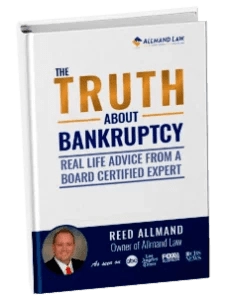
What You May Not Know About Student Loan Debt & Bankruptcy
Debtors may be under the impression they are unable to get student loan
debt discharged. While this may be the case for some, others may qualify
to have this debt eliminated but don’t bother asking their attorney
about it. When you file you are expected to list debt obligations you
have outstanding, including those that are non-dischargeable. Yet, there
are those who wait until after their bankruptcy case is completed before
reviewing whether their student loan debt can be eliminated.
Even if you don’t plan to
file bankruptcy in the immediate future you can review concerns surrounding student loan
debt with a qualified bankruptcy attorney. While there are qualifications
you need to meet to get the loan eliminated, the type of loan you have
can also make a difference in how it is approached in bankruptcy. In some
cases you may be able to get your loan fully or partially discharged.
A few factors that are considered in bankruptcy when it comes to potential
student loan discharge includes income reduction, medical illness, or
anything in the debtor’s situation that would give clear evidence
the debt will cause further hardship. For others there may be evidence
of household income not likely to increase; making it more difficult to
even make small payments toward the balance.
Some student loan debts included in a completed bankruptcy case may be
eligible for elimination. In such situations an adversary proceeding can
help you pursue the claim if you feel you are entitled to the discharge.
Discuss student loan elimination concerns with your attorney.






